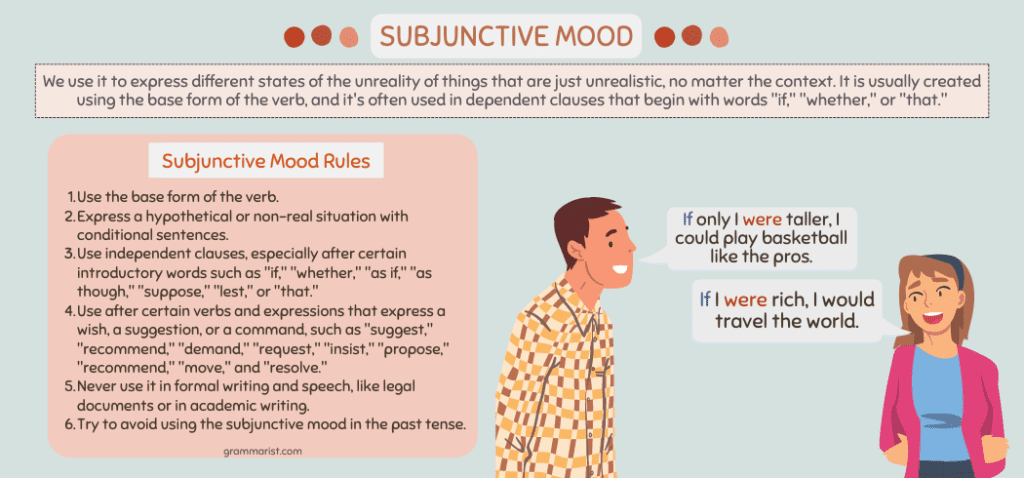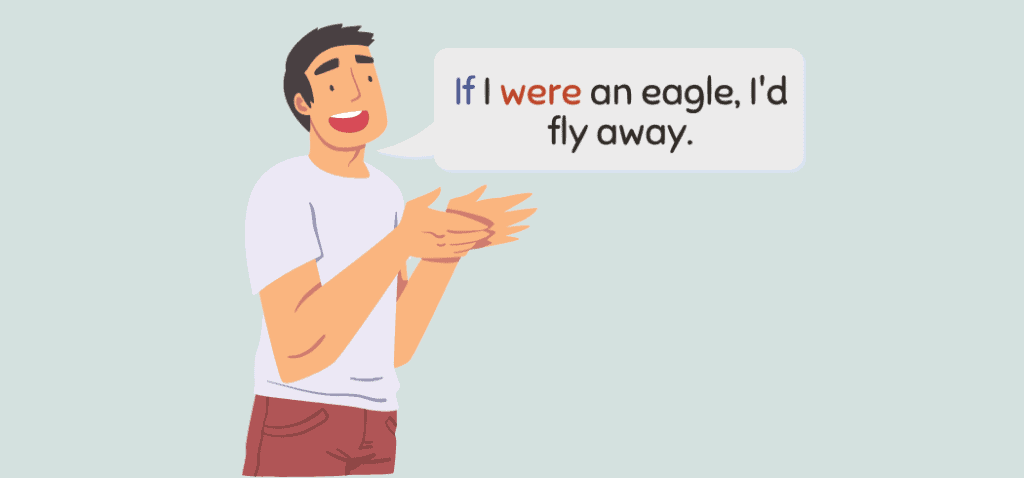Have you ever used the word wish in a sentence? Then you’ve used subjunctive mood! But what are the other forms of the subjunctive mood, and how do you use them properly? I’ve got all the details you need right here, and I’ll even give you some sentence examples with the subjunctive mood.
What Is a Subjunctive Mood?

The simple subjunctive mood definition is basically a grammatical mood used in certain languages, like the English language. We use it to express different states of the unreality of things that are just unrealistic, no matter the context. These are things like wish, doubt, possibility, necessity, or actions that haven’t occurred yet or will never happen.
The subjunctive mood is usually created using the base form of the verb, and it’s often used in dependent clauses that begin with words “if,” “whether,” or “that.”
Now, with that being said, the use of subjunctive mood is slowly fading away because it can be tricky to put a mood into action, which is why some writers forgo the convention altogether.
Subjunctive Mood Were vs. Was
Always try to use were over was. Using the subjunctive mood includes the base form of the verb at hand, which for most verbs is the infinitive form without the “to” like, “If I were a bird, I’d fly somewhere far away.”
You can see the verb “were” is the subjunctive form of “was.” The use of “were” instead of “was” shows that my statement “I am a bird” is obviously not true, and I’m using it to express a hypothetical situation.
Subjunctive Mood Rules
- Use the base form of the verb.
- Express a hypothetical or non-real situation with conditional sentences.
- Use independent clauses, especially after certain introductory words such as “if,” “whether,” “as if,” “as though,” “suppose,” “lest,” or “that.”
- Use after certain verbs and expressions that express a wish, a suggestion, or a command, such as “suggest,” “recommend,” “demand,” “request,” “insist,” “propose,” “recommend,” “move,” and “resolve.”
- Never use it in formal writing and speech, like legal documents or in academic writing.
- Try to avoid using the subjunctive mood in the past tense.
Subjunctive Mood Examples in Sentences

Take a look at some of these concepts of subjunctive mood with phrases.
- If I were an eagle, I’d fly away.
- I wish I had a gazillion dollars.
- My daughter acts as if she were the queen.
- If my son were more careful, he wouldn’t make so many mistakes.
- The neighbor insisted that the windows be open during the concert.
- I propose that we go on a vacation sometime this summer.
- It’s necessary that our team be ready for the big game tomorrow.
- If only I were taller, I could play basketball like the pros.
I wish I were there to have a drink with you and dish. [Ebar]
Practice Your Subjunctive Phrasing
So, to put it simply, using a language tool like subjunctive mood when speaking or writing is pretty much just spewing out hypotheticals. They’re never true statements and are usually obvious, especially when you use terms like wish and hope.
Comments are closed.